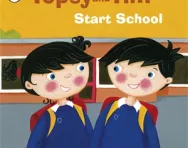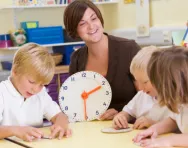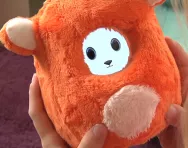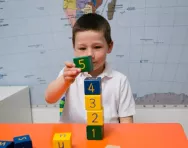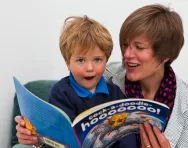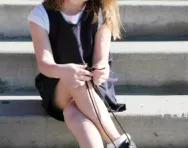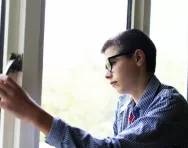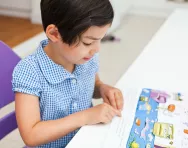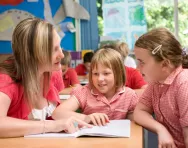Important update from TheSchoolRun
For the past 13 years, TheSchoolRun has been run by a small team of mums working from home, dedicated to providing quality educational resources to primary school parents. Unfortunately, rising supplier costs and falling revenue have made it impossible for us to continue operating, and we’ve had to make the difficult decision to close. The good news: We’ve arranged for another educational provider to take over many of our resources. These will be hosted on a new portal, where the content will be updated and expanded to support your child’s learning.
What this means for subscribers:
- Your subscription is still active, and for now, you can keep using the website as normal — just log in with your usual details to access all our articles and resources*.
- In a few months, all resources will move to the new portal. You’ll continue to have access there until your subscription ends. We’ll send you full details nearer the time.
- As a thank you for your support, we’ll also be sending you 16 primary school eBooks (worth £108.84) to download and keep.
A few changes to be aware of:
- The Learning Journey weekly email has ended, but your child’s plan will still be updated on your dashboard each Monday. Just log in to see the recommended worksheets.
- The 11+ weekly emails have now ended. We sent you all the remaining emails in the series at the end of March — please check your inbox (and spam folder) if you haven’t seen them. You can also follow the full programme here: 11+ Learning Journey.
If you have any questions, please contact us at [email protected]. Thank you for being part of our journey it’s been a privilege to support your family’s learning.
*If you need to reset your password, it will still work as usual. Please check your spam folder if the reset email doesn’t appear in your inbox.
How to prepare your child for primary school
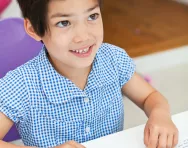
Preparing for primary school: physical skills
‘Encourage your child to get dressed independently; this makes PE more enjoyable, and saves time between lessons. Also, teach her to fasten her own coat: if the teacher has to help all 30 children, playtime is over before it’s begun.’
Laura Hoyland, early years consultant
‘It’s important for your child to learn to eat with other people, for example, using cutlery and staying at the table until she has finished. Eating as a family on a regular basis will help her to master these skills.’
Bernadette Hunter, primary head teacher and president of the National Association of Head Teachers
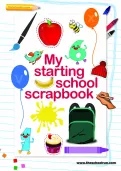
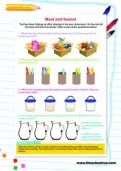
Claim A FREE Starting School Scrapbook!
- Packed with colourful activities
- Focuses on early English, maths & science skills
- Supports your child’s physical and social development
- Shows them that learning is fun, exciting and amazing
Encourage your child to use the toilet independently – but don’t panic about accidents. ‘As children adapt to the new environment, the odd accident is inevitable. Most schools expect this in Reception, and are geared up to manage accidents with an accepting approach. But if your child is not reliably dry and clean, the school nursing service may be able to help.’
Jayne Miller, helpline and information specialist, ERIC: the children’s continence charity
‘Encourage lots of outdoor play: jumping, swinging, running and playing on climbing apparatus. Big physical play helps the brain develop, and builds the smaller muscles ready for writing later on.’
Margaret Travers, early years teacher and consultant
‘Our school asks parents to show children how to use a computer mouse, otherwise they try to swipe the PC screens as they’re so used to tablets and touch screens.’
Elizabeth Karim, mum to Niamh, four
Preparing for primary school: social and emotional skills
‘One of the most important social skills for your child to learn before starting school is to share and take turns. You can encourage this through activities like family board games and giving your child opportunities to play with other children.’
Bernadette Hunter
‘I wish I’d given Hayley more opportunities to socialise with other children. She lacks confidence to initiate play and conversation, and often looks like a rabbit in the headlights in the playground.’
Debbie Payne, mum to Hayley, four
‘Try to give your child some experience of being away from you and in the company of others, whether that’s at pre-school or nursery, or by spending time with friends and family and their children, so she’s more secure about being left at school.’
Bernadette Hunter
Talk to your child: new National Literacy Trust research shows that talking as a family helps children become more confident communicators. ‘Conversation at home is vital to the future success of children and will help them gain the skills they need for a successful and happy life.’
Jonathan Douglas, director of the National Literacy Trust
‘Be really positive about starting school. Walk past it regularly, talk about what the children do there, and make a big deal of how much fun your child will have. And try not to let your child hear you talking about your own anxieties about her starting school to other adults.’
Bernadette Hunter
Preparing for primary school: academic skills
‘Encourage a love of books by sharing cuddly story times, discussing favourite characters and parts of the story. Go to the library and choose books based on your child's interests. By reading together, she will begin to learn that text runs from left to right and top to bottom, and that text carries a meaning.’
Margaret Travers
‘I think it’s helpful if your child can recognise her own name so she can find her own peg and drawer.’
Tabitha Crompton, mum to Amy, four
‘Correct pencil control is a far more important skill for children than learning to write their name or anything else: poor pencil grip can take a long time to unlearn.’
Bernadette Hunter
‘To build early numeracy, have fun counting everything: buttons on coats, stairs, how many steps it takes to reach the kitchen. Point out favourite numbers, such as your child’s age, on the calendar, house numbers and number plates on cars.’
Margaret Travers
‘I wish I hadn’t taught Liberty to write, as her school teaches cursive writing from day one. She went from beautiful printing to illegible spider scrawl, which really frustrates her.’
Samantha Watters, mum to Liberty, five
What if your child is ready for more?
If your child is genuinely keen to learn her letters or have a go at writing, it’s important to make sure that anything you do at home supports what she will be taught at school.
‘The school will have a particular way of teaching things like phonics and handwriting, and it can be very hard for children to learn one way of doing things at home, and then have to relearn it at school,’ explains Bernadette Hunter. ‘If your child is really ready, talk to the school and ask them to explain their methods and what you should be doing at home. But don’t worry if she isn’t showing any interest in formal learning: once she starts Reception and is genuinely ready to learn, you’ll be amazed at how quickly she progresses.’
Starting primary school: more information and support
The NAHT and Family Action have produced two free leaflets for parents of new school starters: Ready to Learn Every Day: Getting the Most out of School and Speaking and Listening.
The BBC Bitesize Starting Primary School website is packed with information, advice, videos for parents and children and even an interactive First Day of School game to play with your child.
For loads more expert advice and information see TheSchoolRun's Starting school hub, with tips on games to play to prepare your child for school, the best books for school starters and how to keep up the momentum in Reception year.
